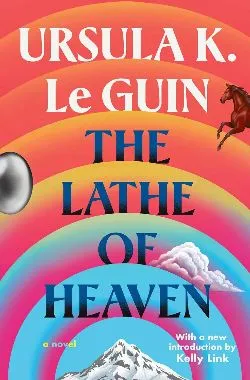
This brief book was fascinating and had be questioning a bit of my own sanity. Ursula K. Le Guin takes the Taoism of Alan Watts and the Beatniks seriously and offers us a book about dreams and what they mean for us. When I say the “Taoism of […],” I do not mean it to be dismissive–it just isn’t Taoism as religion. Instead, the emphasis is on being the “uncarved block” and moving with the Tao.
I never anticipated a book where there’d be pacific, spiritual space turtles, and yet here it is.
I appreciated Le Guin’s nuanced perspective on the “be careful what you wish for, as you just might get it” trope. It works here because even good, benevolent things have negative consequences. In Le Guin’s telling, it is because of duality: by having good, you get bad; by having bad, you get it. The way out is through a non-dualist perspective.
The Lathe of Heaven is not a character-driven book. Instead, it plays with a concept and it seems to come out of the same tradition as Philip K. Dick, especially in works like The Man in the High Castle.
It might be worth reading this alongside her notes in the Tao Te Ching.